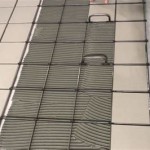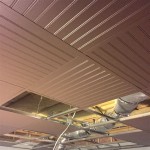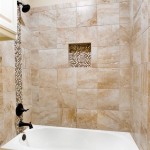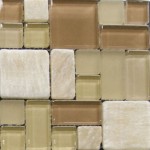Can I Install Tile Without Backer Board? Exploring Alternatives and Best Practices
The question of whether tile can be installed without backer board is a common one among homeowners and DIY enthusiasts embarking on tiling projects. The simple answer is sometimes, but the suitability of foregoing backer board depends heavily on the subfloor, the type of tile, the intended use of the space, and the prevailing environmental conditions. Understanding these factors is crucial for ensuring a long-lasting and aesthetically pleasing tile installation.
Backer board, specifically cement backer board, is a durable, water-resistant substrate designed to provide a stable and consistent surface for tiling. Its properties are specifically engineered to withstand the moisture and weight associated with tile installations, making it a standard recommendation in many scenarios. However, alternative methods exist, and in certain situations, direct tile installation onto a suitable subfloor may be viable.
This article explores the circumstances under which tile installation without backer board might be considered, examines the potential risks and benefits, and outlines best practices for achieving a successful outcome. The information provided is intended to offer a comprehensive understanding of the topic, allowing informed decisions tailored to specific project requirements.
Evaluating the Subfloor: A Critical First Step
The most critical consideration when contemplating tile installation without backer board is the condition of the existing subfloor. The subfloor must be structurally sound, level, and free from any deflection or movement. Deflection refers to the amount the subfloor bends or sags under weight. Excessive deflection can cause tiles to crack and grout to fail over time. Industry standards dictate maximum allowable deflection based on the type of tile being installed. For example, larger format tiles typically require a stiffer subfloor than smaller tiles.
Acceptable subfloor materials for direct tile installation typically include concrete slabs or adequately reinforced plywood or OSB (oriented strand board). Concrete slabs must be properly cured, clean, and free from cracks or other defects. Plywood or OSB subfloors should be of appropriate thickness (typically ¾ inch or thicker) and securely fastened to the floor joists according to local building codes. It's crucial to verify that the joist spacing is adequate to support the combined weight of the subfloor, tile, and anticipated load.
Before proceeding with any tile installation, the subfloor should be thoroughly cleaned and prepared. This involves removing any debris, paint, or adhesive residue. Any imperfections or cracks should be addressed with appropriate repair materials. Self-leveling compounds can be used to create a perfectly level surface, if needed. Proper surface preparation is essential for ensuring a strong bond between the tile adhesive and the subfloor.
If the existing subfloor is not deemed suitable for direct tile installation, the installation of backer board is strongly recommended. Attempting to tile over a weak or unstable subfloor will likely result in tile failure, requiring costly repairs in the future.
Factors Influencing the Decision: Tile Type, Location, and Moisture
Several factors beyond the subfloor condition contribute to the decision of whether or not to use backer board. The type of tile being installed is one such consideration. Smaller tiles, such as mosaics, are generally more forgiving and can tolerate minor imperfections in the subfloor. Larger format tiles, on the other hand, require a perfectly flat and stable surface to prevent cracking.
The location of the tile installation also plays a significant role. Areas prone to moisture, such as bathrooms, kitchens, and laundry rooms, typically benefit from the added protection of backer board. Cement backer board is inherently water-resistant and provides an extra layer of defense against water damage, preventing moisture from penetrating the subfloor and causing mold growth or structural damage. In dry areas, such as living rooms or bedrooms, the risk of moisture damage is lower, and direct tile installation may be a more viable option, assuming the subfloor meets all other requirements.
The type of adhesive used is another important consideration. Modified thin-set mortars are recommended for most tile installations, as they offer superior bonding and flexibility compared to unmodified thin-set mortars. When installing tile directly onto a plywood or OSB subfloor, a flexible thin-set mortar is particularly important to accommodate any minor movement in the subfloor. Adhesives specifically designed for use with wood substrates should also be considered. Careful selection and application of the appropriate adhesive are crucial for achieving a long-lasting and trouble-free tile installation.
Furthermore, understanding the local climate and potential for seasonal changes in humidity is important. In regions with significant temperature and humidity fluctuations, the subfloor may expand and contract, which can stress the tile installation. Backer board can help to mitigate these effects by providing a stable and consistent surface that is less susceptible to movement.
Alternatives to Traditional Cement Backer Board
While cement backer board is the most common type of backer board used for tile installations, alternative products are available. These alternatives may offer advantages in terms of weight, ease of installation, or specific performance characteristics.
One popular alternative is lightweight tile backer board, which is made from materials such as extruded polystyrene foam or mineral wool. These boards are significantly lighter than cement backer board, making them easier to handle and install. They also offer excellent thermal insulation properties, which can help to improve energy efficiency. However, lightweight backer boards may not be as durable or water-resistant as cement backer board, so it's important to carefully consider their suitability for the specific application.
Another alternative is self-leveling underlayment (SLU). While not technically a backer board, SLU can be used to create a perfectly level and smooth surface for tile installation. SLU is a cement-based mixture that is poured onto the subfloor and allowed to spread and self-level. Once dry, it provides a stable and consistent substrate for tiling. SLU is particularly useful for correcting uneven or damaged subfloors.
In some cases, tile membrane systems can be used in lieu of backer board. These systems typically consist of a thin, waterproof membrane that is applied directly to the subfloor. The membrane provides a barrier against moisture and helps to isolate the tile installation from any movement in the subfloor. Tile membrane systems are often used in shower installations and other areas where waterproofing is critical.
The choice of backer board or alternative depends on a variety of factors, including the budget, the skill level of the installer, and the specific requirements of the project. It's important to research the available options and select the product that is best suited for the intended application.
Ultimately, the decision of whether to install tile with or without backer board is a complex one that requires careful consideration of all relevant factors. Assessing the subfloor, understanding the properties of different materials, and adhering to industry best practices are essential for achieving a successful and long-lasting tile installation. Consulting with a qualified tile professional can provide valuable guidance and ensure that the project is completed safely and effectively.

Tiling On Wooden Floors Part 4 Overboarding Bathroom Guru

What Lies Beneath Tsj

Tile Backerboard Material Options Fine Homebuilding

Cement Board What It Is When To Use Home Tips For Women

How To Install Tile Backer Board On A Wood Subfloor Diy

How To Install Cement Board The Home Depot

6mm No More Ply Tile Backer Board

Tile Installation Backer Board Around A Bathtub Family Handyman

How To Choose The Right Backer Board For Tile Blog

How To Install Cement Board The Home Depot
Related Posts








